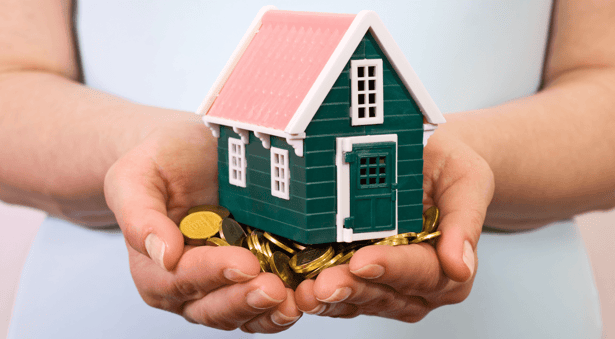Home equity is a fancy way to refer to the amount of money you could conceivably pocket if you sold your home today.
A more nuanced calculation is to take the current market price of your home and subtract the total amount you have left to pay on your mortgage.
Home equity, however, is always a theoretical number until you actually do something with it, such as borrow money from a bank or financial institution based on their assessment of what your home is worth.
Home equity, therefore, has only one practical purpose: borrowing money.
But what are some of the ways you can use it?
Home Equity Loans
A home equity loan is a structured, one-time lump sum from a bank or financial institution for a designated purpose. Just as a car loan must be used to buy a car, a home loan must be used for the cost of a new home. Once the home equity loan is granted, you'll have to repay it on a regular basis (usually monthly) over a specified time frame (often 10-15 years).
Home equity loans often come with higher interest rates than your original mortgage. The benefit of a home equity loan, however, is that you can often borrow more money than with a HELOC (Home Equity Line of Credit ).
While the interest rates may be higher than for your mortgage, they're usually lower than other forms of credit (like credit cards), making them attractive to people who need to pay off outstanding debts.
It's important to note that home equity loans are, just like mortgages, based on a lien on your property. This means that, if you fail to make your repayments, the bank or lending institution could foreclose on your home.
For more information about home equity loans, consult a bank or lending institution.
 HELOCs
HELOCs
A Home Equity Line of Credit (HELOC, pronounced he-lock) is essentially a line of credit from a bank or financial institution that is based on the amount of home equity. Effectively, your home equity functions like a credit card where the "spending limit" is based on the amount of equity in your home.
Just like a credit card, HELOCs have interest rates (that often fluctuate) and established minimum repayment times and conditions. And just like a credit card, you do not need to spend the maximum amount of credit. You just borrow (use) as much as you wish, and spend it on anything you wish.
HELOCs are popular sources of credit primarily because they have very low interest rates. Home owners can do anything with HELOCs, the top four reasons being:
- Renovating/repairing the home.
- Investing in/buying a new property.
- Paying off/down other debts.
- Paying for higher education.
To obtain a HELOC, you'll need to pay a variety of fees.
HELOCs are often used to establish "just in case" credit. Aside from the fees you'll need to pay to get one, you're never required to borrow any money, and you won't be charged interest if you don't use your HELOC. Likewise, if you do borrow money in a HELOC, you're only responsible for repaying what you borrowed (plus interest).
For more details, you need to consult banks and financial institutions that offer HELOCs.
Refinancing
When you first buy a home, unless you have enough cash on hand to purchase the house outright, you'll need to take out a loan called a mortgage. This can be either a fixed-rate mortgage or a variable-rate mortgage. Usually, most home owners have a lengthy period to repay their mortgage, 10, 20, or even 25 years.
Refinancing a mortgage generally is identical to a second mortgage, a brand-new loan that both pays off the original mortgage as well as sets more favourable terms for repayments going forward.
For first mortgages, most home owners rely on making a down payment and then obtaining a mortgage to get enough money to purchase the house. But once you've built up home equity, you have the option of refinancing, effectively meaning you'll be borrowing less money.
For instance, if your house was purchased for $100,000 and you put a down payment of 10% ($10,000) then your first mortgage was for $90,000 (plus interest). If you're refinancing years later, and now you owe just $45,000 on your mortgage, your new (second) mortgage will be for just $45,000 (plus interest).
Borrowing less money involves less risk, and your proven track record of paying off your first mortgage makes it easier to get a second mortgage with far better terms.
A rising real estate market that has increased the value of your home and/or a proven track record of paying off your mortgage gives you the possibility of borrowing against that value (home equity) in the form of a loan.
Whether it's a home equity loan, a home equity line of credit (HELOC), or refinancing your mortgage, your home's equity can allow you to borrow money at lower interest rates than other types of loans. As with all major financial decisions, consult a lawyer or trusted advisor before borrowing against your home's equity.



 HELOCs
HELOCs
